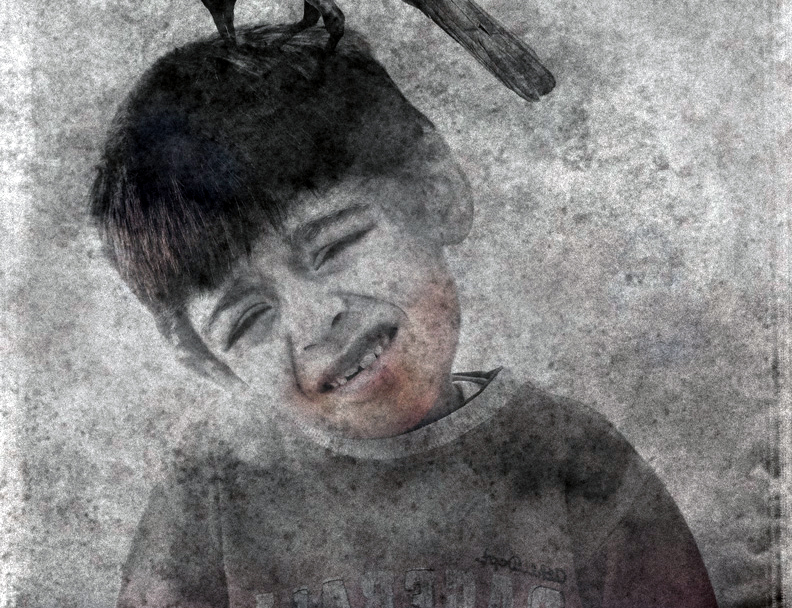Whenever I hear or read the physician Gabor Maté, my heart (or soul or spirit or whatever you want to call it) softens. A little boy inside of me drops his toys and sits cross-legged in awe, paying full attention.
Maté is an expert on trauma (which I’ll define in a moment). He was born in Budapest in 1944, two months before the Nazis occupied Hungary. He was given by his mother to a stranger to be kept safe. Here’s what he said recently about what happened just before the Germans came:
“In a diary entry, my mother described how she was following doctor’s orders not to pick me up and feed me when I was asking for it. Because then the ethic was, you feed on schedule, not on the child’s demand. That itself is trauma. Because what message do I get as a two-week-old? That my needs aren’t important, that I’m alone, that the person who loves me doesn’t care enough about me to pick me up. And that kind of trauma is very common in all societies, so I don’t want to create the impression that trauma is only under dramatic circumstances.”
Shew. It’s like he’s speaking directly to that boy inside of me. The one who sometimes feels unimportant and alone. The one who feels like no one sees the world like he does. My shoulders unstiffen. My stomach loosens up. The boy feels seen and understood.
My understanding of what trauma is has changed and deepened, thanks mostly to Maté. The dictionary definition is that it’s an emotional response to a terrible event, like an accident, sexual assault, or natural disaster. That’s what I’d always thought it was. That’s how we talk about it in our culture. If you haven’t experienced something like that, then you’re “normal.” You’re fine. And if you aren’t fine and need help, then you must be “weak” or “crazy.”
But, Maté says, “When parents are just too distracted, too stressed to provide the necessary responsiveness, that can also traumatize the child.”
We don’t have to live through the Holocaust to be traumatized. Something as simple and routine as being told to “walk it off” when we were hurt playing soccer at 5 years old could’ve stuck with us. It may not have. But if our little 5-year-old body was overwhelmed by the pain, and an adult didn’t see that pain and help us calm down our nervous system and frantic mind, trauma happened. We were left alone to try to deal with those overwhelming feelings. And no 5-year-old can handle that without help.
The trauma wasn’t caused by the injury. It was caused by being left alone without help. Without an adult who noticed and soothed our emotional pain. Even if the adult put on a band aid and the physical pain stopped, if they didn’t care for our emotions, trauma happened.
The reason it’s trauma is because it stuck with us. We might’ve jumped back into the soccer game and the physical pain faded. But some part of us got stuck in the past. The part that wasn’t cared for emotionally. That part of us came up with a story for why we weren’t cared for. I shouldn’t have cried. I shouldn’t show that I’m hurt. I should act tough. All of this is going inside our 5-year-old body and brain whenever we’re not cared for emotionally—which happened to all of us from time to time. Maté says, “Trauma is not what happens to you, it’s what happens inside you as a result of what happened to you.”
What I’m getting at is that: everyone experiences trauma, it gets stored in our brain and nervous system, and it’s relational. It happens in relation to other people. That’s why therapy can be so effective. Maté says, “Healing is actually the capacity to hold the pain.” In therapy, we expose the trauma and the secret stories our little selves came up with back in the day. The therapist helps us do the witnessing and soothing of the pain and overwhelm that our parents and other caregivers couldn’t. We learn that we have the capacity to hold the pain. That the pain won’t kill us. And we move on with a new appreciation for the richness of this human experience.
I’m checking in with that little boy inside of me right now. He’s crying. There’s so much trauma everywhere in this culture. Too much. Every parent is distracted because they have to be. We all have to work way too many hours. We’re all stressed. We’re all a little too busy because we have to keep up.
The little boy knows the scary truth: To heal trauma, we have to heal this society. And he doesn’t know how to do that.
Hi, I’m Jeremy, a therapist for exhausted overachievers, stuck dreamers, and burned out activists. Subscribe to my weekly newsletter to get posts like this straight to your inbox here.
To work with me in individual therapy, join one of my therapy groups, or hire me to teach wellness skills to your organization, get in touch.
Download my free ebook on how meditation has made me less anxious and transformed my life.
Photo by Ali Em.
